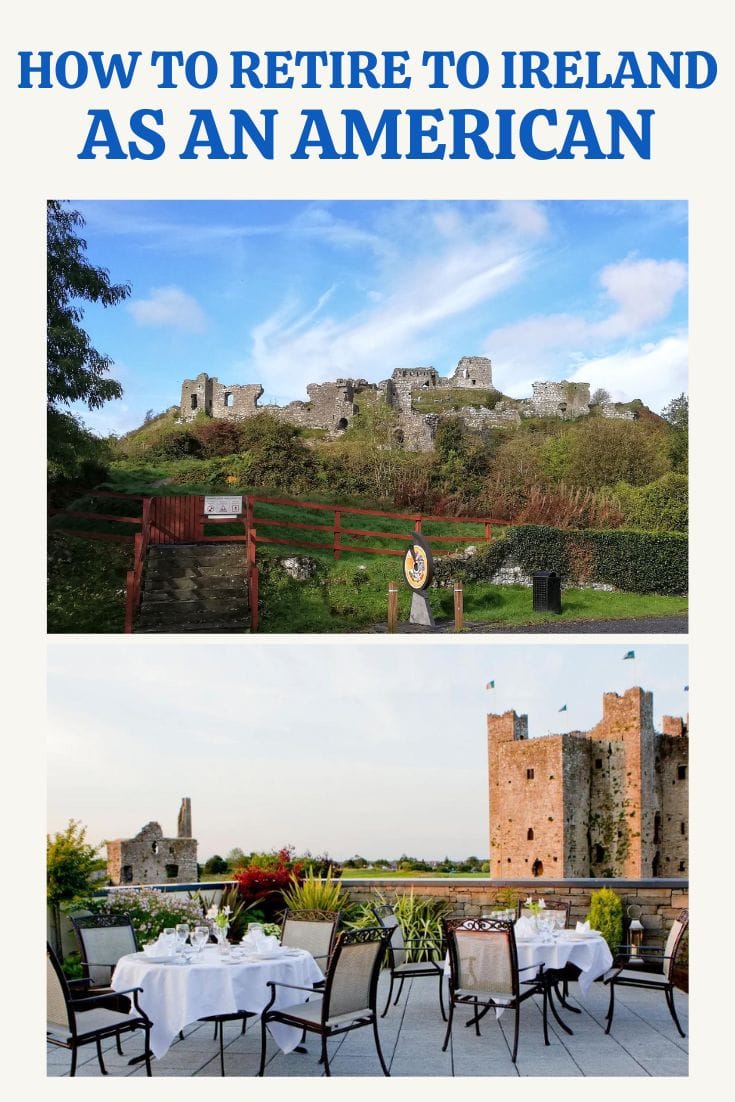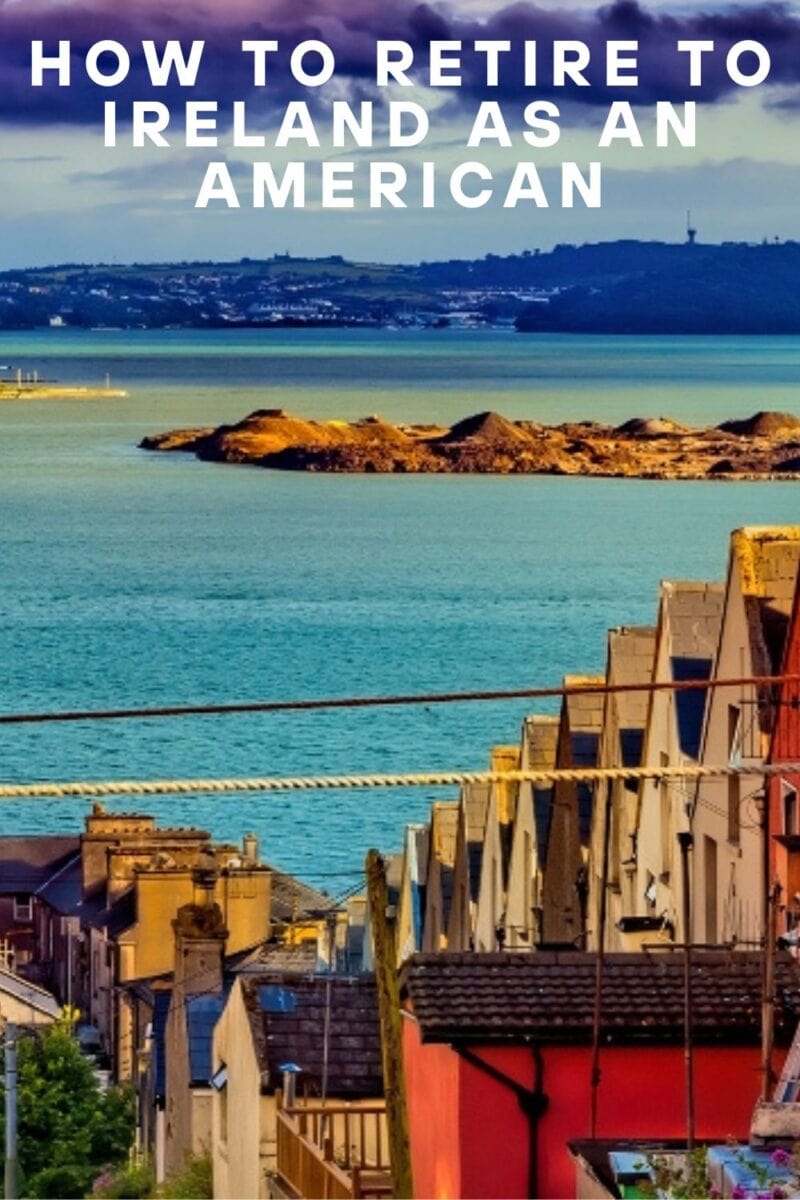How to retire in Ireland a complete guide to moving here
Retiring abroad is a dream for many, and Ireland is a country that offers a really wonderful retirement destination. With its rich history, stunning landscapes, and vibrant culture, Ireland is an ideal destination for those seeking a slower pace of life in their golden years. But what does it take to retire to Ireland? In this article, I will explore the process of retiring to Ireland from my personal experience of helping friends to retire here.
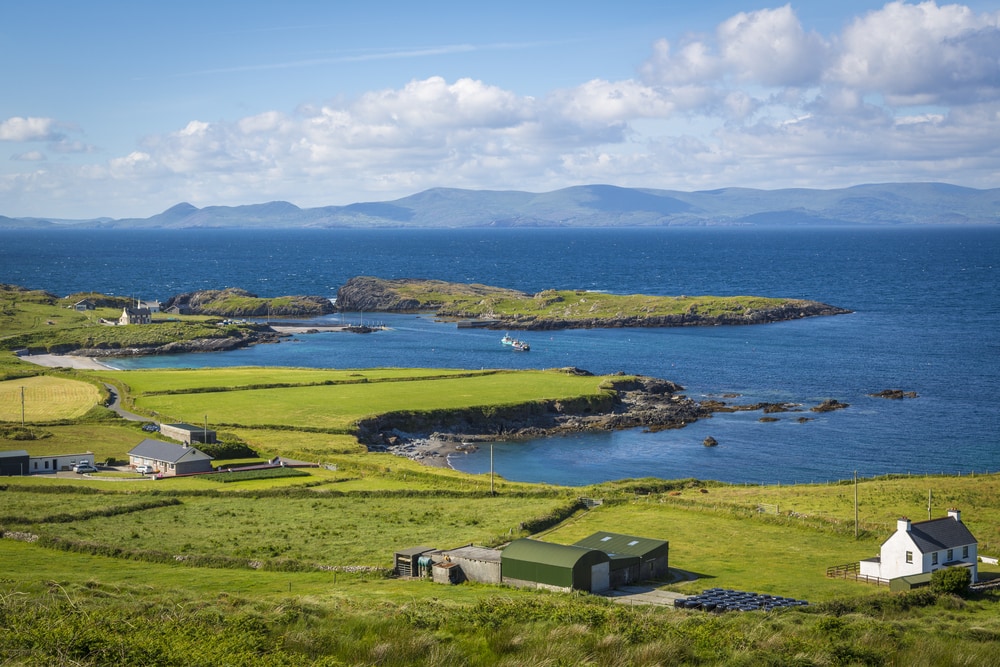
My husband and I retired to Ireland but we were very lucky in that we could claim Irish by birth and Irish by Irish citizen parents. We can also pass down to our children Irish citizenship if they want it. This means we can stay in Ireland as long as we like.
One of the first things to consider when planning your retirement in Ireland is the legal requirements. Non-European Union (EU) citizens will need to apply for a long-term visa or residency permit to legally reside in the country for an extended period. This process can be quite complex, so it’s advisable to seek the assistance of an immigration lawyer or consultant to ensure all the necessary paperwork is in order.
If you want to retire in Ireland financial planning is another crucial aspect to consider before retiring to Ireland. While the cost of living in Ireland can be higher compared to other countries, there are various economic benefits for retirees. For instance, pension income from certain countries may be tax-exempt in Ireland under the Double Taxation Agreement. Additionally, retirees may be eligible for various social welfare entitlements and healthcare benefits.

When it comes to finding a place to live, Ireland offers a range of options to suit different preferences. From bustling cities like Dublin, Galway and Cork to quaint coastal villages, the Wild Atlantic Way and the epic Ancient East. Not to mention stunning countryside like we see everyday in Donegal and all the beautiful Irish Villages to stay in.
Retiring to Ireland can be an exciting and fulfilling chapter in your life. By following the steps outlined in this article, you’ll be well on your way to making your Irish retirement dream a reality.
- How to retire in Ireland a complete guide to moving here
- FAQs and Questions about retiring in Ireland
- 1. What is a retirement visa and how can I apply for one in Ireland?
- 2. Can I retire to Ireland if I am not an Irish citizen?
- 3. What are the steps involved in moving to Ireland for retirement?
- 4. Are there specific visa requirements for retirees wishing to retire in Ireland?
- 5. Can I retire in Ireland without a retirement visa?
- Retirement in Ireland
- Residency Rights for those wanting to retire to Ireland
- Retire in Ireland as an American or from outside the EU
- Retiring and moving to Ireland from the USA or Canada
- American Citizens and Income Tax issues in Ireland
- How to apply for an Irish Retirement Visa
- What is a D Reside Visa
- How to get an Irish passport and claim Irish Citizenship
- Born outside Ireland
- Claiming Irish citizenship
- Citizenship through descent from Irish grandparents
- Obtaining healthcare in Ireland as a retiree – the public health services in Ireland
- FAQs and Questions about retiring in Ireland
FAQs and Questions about retiring in Ireland
1. What is a retirement visa and how can I apply for one in Ireland?
A retirement visa is a type of visa that allows individuals to retire in Ireland. To apply for a retirement visa, you need to fulfill the visa requirements set by the Irish government. Contact the Irish embassy or consulate for detailed information on the process.
2. Can I retire to Ireland if I am not an Irish citizen?
Yes, you can retire to Ireland even if you are not an Irish citizen. However, you may need to apply for an Irish visa or meet certain visa requirements to reside in Ireland as a retiree.
3. What are the steps involved in moving to Ireland for retirement?
If you want to retire and live in Ireland, you will need to apply for a visa based on your retirement plans. Ensure you are ordinarily resident in Ireland and comply with the visa requirements for retiring in Ireland.
4. Are there specific visa requirements for retirees wishing to retire in Ireland?
Yes, there are specific visa requirements for individuals who wish to retire or work in Ireland. Contact the relevant authorities to understand the requirements for the Irish retirement visa or residency permits.
5. Can I retire in Ireland without a retirement visa?
In most cases, individuals need a visa to enter Ireland for retirement purposes. Ensure you have the necessary visa to enter Ireland to avoid any legal complications during your stay.
Retirement in Ireland
If you were born on the island of Ireland – Northern or Republic
The island of Ireland is comprised of 2 parts, the North which is part of the U.K and Ireland which is an independent republic. If you want to move to Ireland you need to understand a little about the country itself and if you have Irish ancestry how you can move to Ireland.
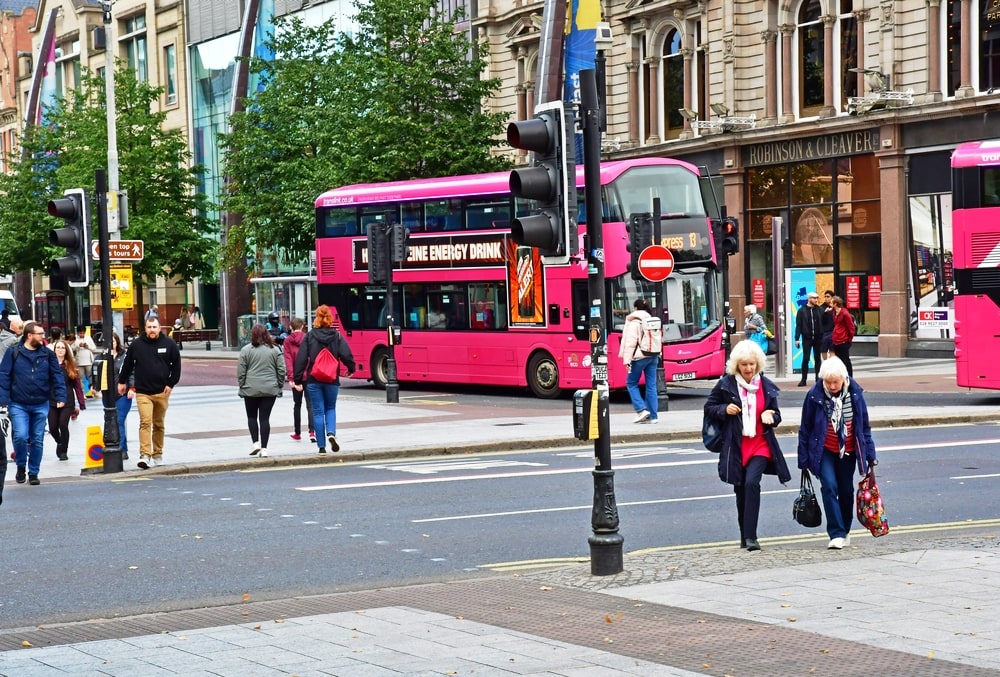
If you were born anywhere on the island of Ireland you are entitled to Irish citizenship – even if you were born in Northern Ireland (UK). You can obtain your Irish passport and retire to Ireland through this citizenship even if you want to live in the Republic of Ireland.
Retire to Ireland – citizenship by descent
If you have Irish-born parents or grandparents you can apply for an Irish passport for citizenship via descent. You must have proof of that citizenship with either their birth certificates or registration with the Foreign Births Department.
Retire to Ireland from USA – via descent through great-grandparents
Contact the Department of Foreign Affairs and Trade if you have any questions about citizenship based on descent from your great-grandparents. Currently, it can take up to 1 year to have your birth registered and become an Irish citizen.
To become an Irish citizen, your great-grandparent’s grandchild (ie your parent) who is of Irish descent must have been registered in the Foreign Births Register between the years 1956 and 1986, or if you were born after 1986 they registered before you were born.
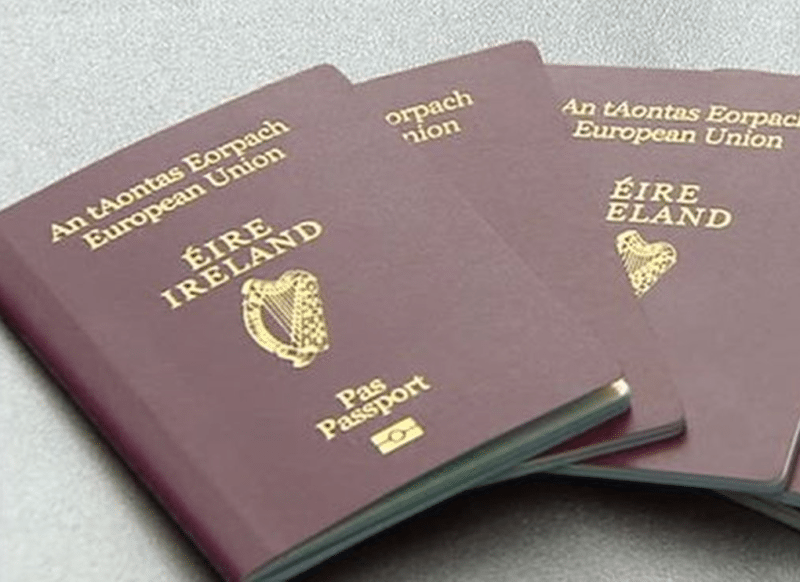
To become an Irish citizen, contact the Department of Foreign Affairs and Trade to check if your parent of Irish descent (ie your great-grandparent’s grandchild) is registered in the Foreign Births Register.
If they are registered, you can apply to register yourself. When or if you are registered, you become an Irish citizen on the date of registration. You can then apply for an Irish passport.
If you are thinking of retiring to Ireland or even just visiting a brilliant way to see the Island on a budget is to backpack and visit all the interesting corners of the country. This Backpacking Ireland Travel Guide is all the information you will need to get the most out of the country on a budget.
Residency Rights for those wanting to retire to Ireland
Can I retire to Ireland from UK?
UK citizens also have the right to move to Ireland without any conditions or restrictions. If you were born in the North of Ireland or your parents were you have automatic rights to reside in Ireland. If you were born outside of Ireland but your parents were born in Ireland again you have the right to live in or move to Ireland.
If you were born in Ireland, the UK or in the EEA (The European Economic Area) which comprises the member states of the European Union, Iceland, Liechtenstein and Norway) you have some claim on residency rights in Ireland. For example, if you were born in Northern Ireland (officially the UK) you have automatic rights to live in or move to Ireland.
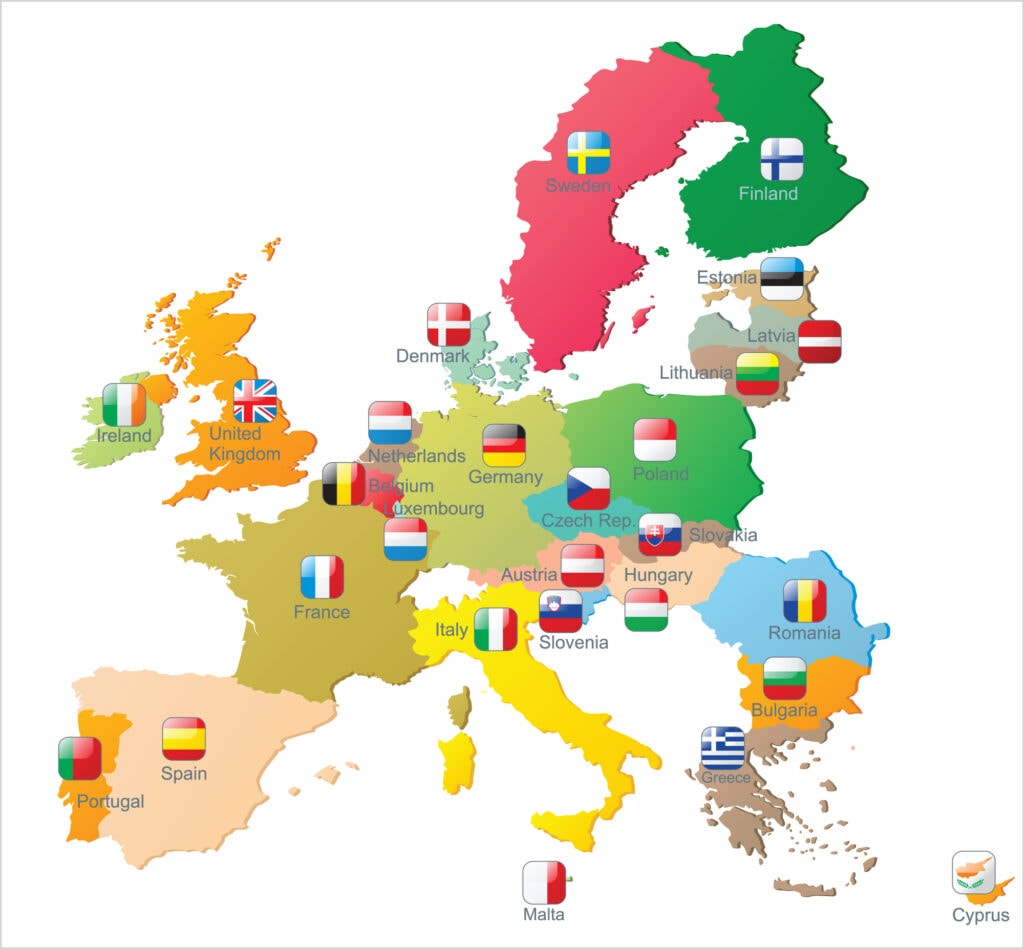
What does the EEA refer to? The European Economic Area, abbreviated as EEA, consists of the Member States of the European Union (EU) and three countries of the European Free Trade Association (EFTA) (Iceland, Liechtenstein and Norway; excluding Switzerland).
EEA and Swiss nationals can move to Ireland with their family members but there are some limits. EEA and Swiss nationals and their families can remain in Ireland for up to 3 months without restriction. If you are retired and plan to stay for more than 3 months, you must have sufficient resources and health insurance, or you must be employed or self-employed. If you are considering moving for retirement check out these top self-employed jobs.
Non-EEA nationals: citizens of certain non-EEA countries must apply for an entry visa before they travel to Ireland. You can find out if you need a visa to enter Ireland you can find out at the Citizen’s Advice Bureau. When you have arrived in Ireland, if you are not an EEA or Swiss national, you must have permission to remain if you wish to stay for more than 3 months. So for example, if you are a Canadian or US citizen you can stay in the country for 3 months (90 days) without a Visa.
Retire in Ireland as an American or from outside the EU
Getting a work permit to move to Ireland
Non-EEA nationals can become employed in Ireland and apply to stay but certain conditions of employment must be met. There are certain employment areas or skilled labour that are required in Ireland and you can obtain a residency permit if these requirements can be met you can find more information here. So for example, if you are an engineer, doctor, scientist and so on you can probably find work and obtain a residency permit. You must checked the Skilled Labour list and obtain a conditional letter of offer from an employer to obtain a work permit.
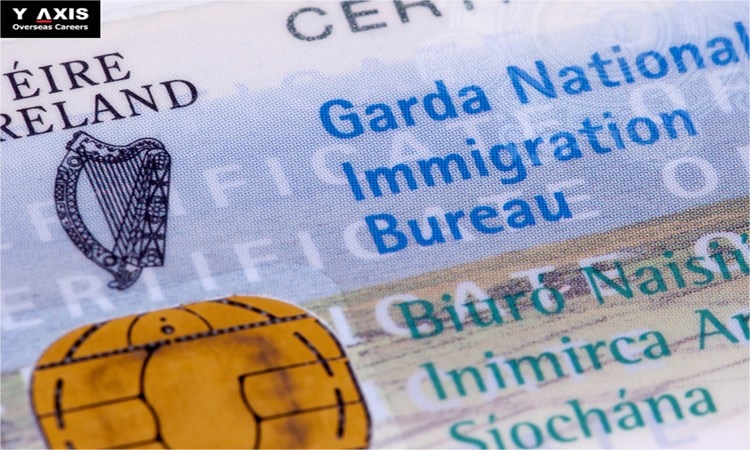
Retiring and moving to Ireland from the USA or Canada
Requirements for the Irish Retirement
How to get a retirement visa Ireland? The Ireland retirement Visa is dependent on your income and savings. if you are retired and have a pension and financial resources you can move to Ireland as a retiree.
What are the financial requirements and how much money do I need to retire in Ireland? The financial threshold is around €50,000 per person per year, but you must also prove you have access to a lump sum of money to cover unforeseen expenses. This should be the equivalent of the price of purchasing a house in the U.S or around $250,000. In addition, you have to register with the local immigration officer following your arrival.
You won’t be eligible, obviously for any benefits in Ireland and you will have to ensure you have private healthcare coverage, healthcare in Ireland is not free and the average doctor’s visit will be around €50 Euros.
Keep in mind that rentals and property purchases in Dublin are expensive and are very similar to major N. American cities. Rural areas like Donegal and Tipperary, for example, are much cheaper and you will get way more for your money. Rentals are also cheaper in rural areas as well. As Canadians, we have found the cost of utilities, heat and food to be if not on par with N. America in some cases they are considerably cheaper than in Canada.
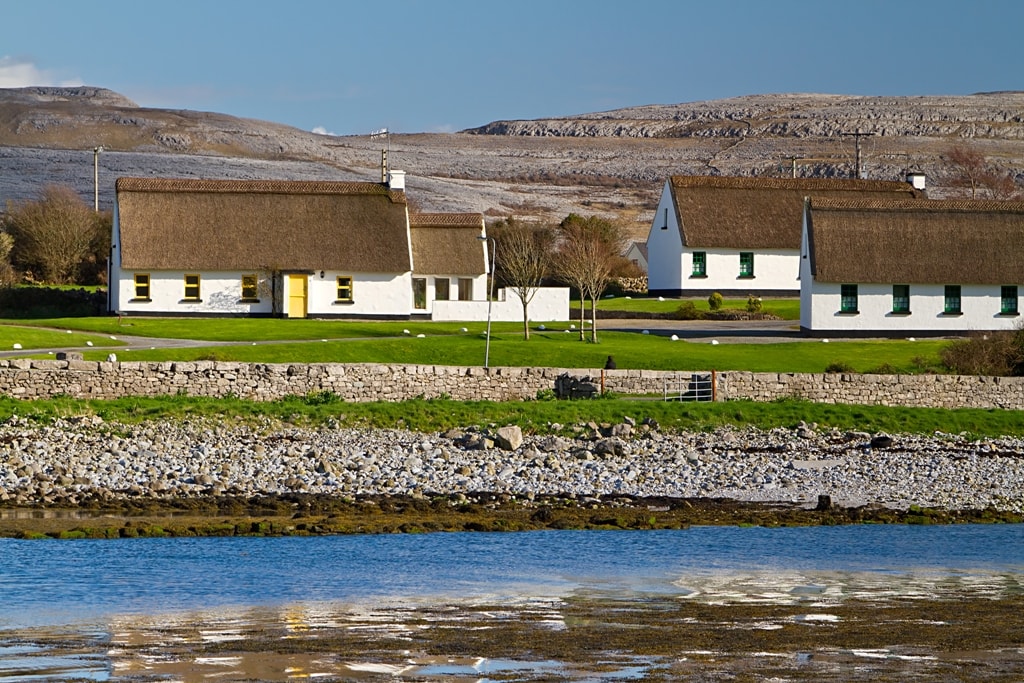
If you are a student who wishes to study in Ireland you must prove you are enrolled in a recognized program and that you have sufficient funds to support yourself while you are in the country. This is around €7000 per year of study. You can work while you are a student but it must be in a “casual” labour-type position of around 20 hours per week.
American Citizens and Income Tax issues in Ireland
If you are planning to retire to Ireland one of the essential aspects of being an American citizen is dealing with taxation issues. The obligations of American citizens to report their income and pay taxes extend even if they live and work abroad, adding an additional layer of complexity to the taxation system. This often leads to a need for professional assistance from tax accountants or attorneys, another expense that citizens have to account for.
Ireland USA Tax Treaty
The convention between Ireland and the United States (US) covers inheritance tax in Ireland and federal estate taxes in the US. It does not apply to gift tax. Neither does it apply to any taxes in the nature of death duties, which may be imposed by US states.

How to apply for an Irish Retirement Visa
To apply for a visa in Ireland, you need to follow a specific process. Firstly, determine the type of visa you require based on your purpose of visit, such as tourism, work, study, or family reunion. Next, gather the necessary documents for your application, including a valid passport, completed application form, passport-sized photographs, and any additional supporting documents.
You may also need to provide proof of sufficient funds, travel insurance, private health insurance or a letter of invitation if applicable. Once you have all the required documents, book an appointment at your nearest Irish embassy, consulate, or visa application center. During the appointment, submit your application and pay the applicable fee.
It is important to remember that processing times and fees may vary depending on your nationality and visa type. After submitting your application, you can track its progress online. If approved, collect your visa and start planning your trip to Ireland. Make sure to adhere to the visa validity and abide by the rules and regulations during your stay in the country.
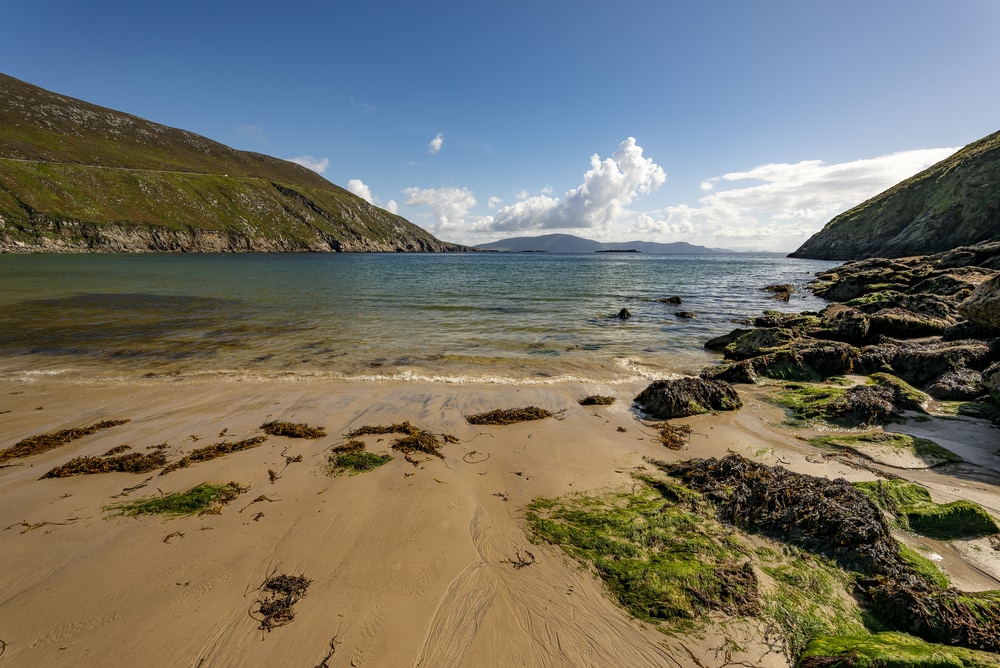
What is a D Reside Visa
A Long Stay ‘D’ Visa grants successful applicants over 90 days to remain in Ireland, whether that be to work, study or to join and settle with existing family members in the country. You can apply for any Visa through the Department of Foreign Affairs.
How to get an Irish passport and claim Irish Citizenship
The following information details how to claim Irish citizenship through birth or ancestors.
Born in Ireland
If you were born on the island of Ireland before 1 January 2005, you are entitled to be an Irish citizen.
Irish citizen parents
If you were born in Ireland after 1 January 2005 and your parent(s) were Irish citizens, then you are also an Irish citizen.
Foreign national parents
A child born on the island of Ireland on or after 1 January 2005 is entitled to Irish citizenship if they have a British parent or a parent who is entitled to live in Northern Ireland or the Irish State without restriction on their residency. A child born in Ireland to a parent who has been granted refugee status is also automatically entitled to Irish citizenship.
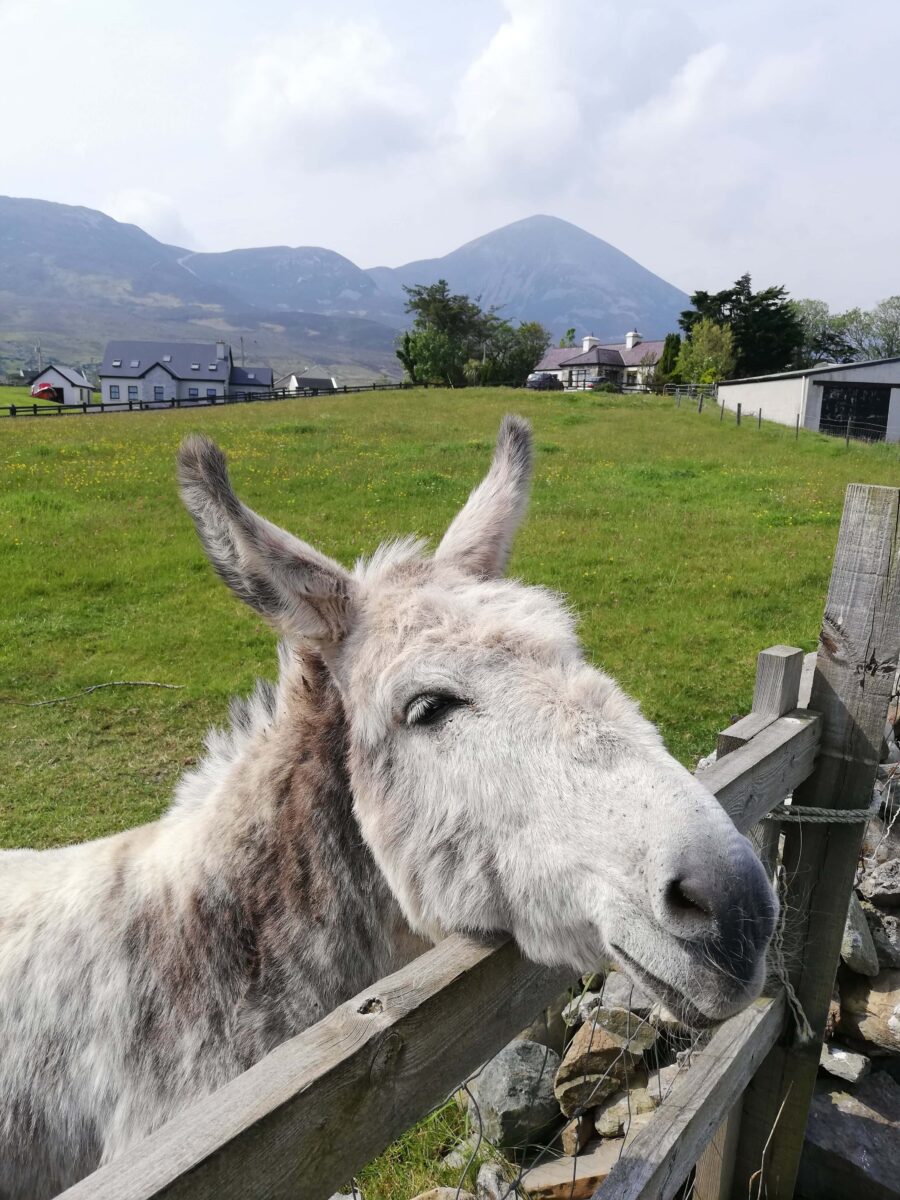
Born outside Ireland
Irish citizen parents born in Ireland
If either of your parents was an Irish citizen who was born in Ireland, then you are automatically an Irish citizen, irrespective of your place of birth. If you are an Irish citizen, you can apply for an Irish passport. You do not need an Irish passport in order to be an Irish citizen but having an Irish passport is evidence that you are an Irish citizen.
Irish citizen parents born outside Ireland
If you were born outside Ireland to an Irish citizen who was born outside Ireland, then you are entitled to become an Irish citizen, gain your Irish passport and retire to Ireland very easily.
If your parent or parents have Irish citizenship in another way, for example, through marriage, adoption or naturalisation, and was an Irish citizen at the time of your birth, you can become an Irish citizen.
Claiming Irish citizenship
Before you can claim Irish citizenship, you must have your birth registered in the Foreign Births Register.* If you are entitled to register, your Irish citizenship is effective from the date of registration – not from the date when you were born.
Citizenship through descent from Irish grandparents
If one of your grandparents is an Irish citizen who was born in Ireland, but neither of your parents was born in Ireland, you may become an Irish citizen. You will need to have your birth registered in the Foreign Births Register.
The following table may help to explain the situation:
| If you are: | Then you are: | |
| A | Born in the island of Ireland on or before 31 December 2004 | Entitled to Irish citizenship or you are an Irish citizen |
| B | Born on the island of Ireland on or after 1 January 2005 | Entitled to Irish citizenship if one or both of your parents: *Is Irish or British or entitled to live in Northern Ireland or the Irish State without restriction on their residency – or is a foreign national legally resident in the island of Ireland for 3 out of 4 years immediately prior to your birth – or as been granted refugee status in Ireland |
| C | Child of A, born outside the island of Ireland | An Irish citizen |
| D | Child of C and a grandchild of A, born outside the island of Ireland | Entitled to Irish citizenship, but you must first register in the Foreign Births Register |
| E | a child of D and a great-grandchild of A, born outside the island of Ireland | Entitled to Irish citizenship, by having your birth registered in the Foreign Births Register, but only if your parent D had registered by the time of your birth. |
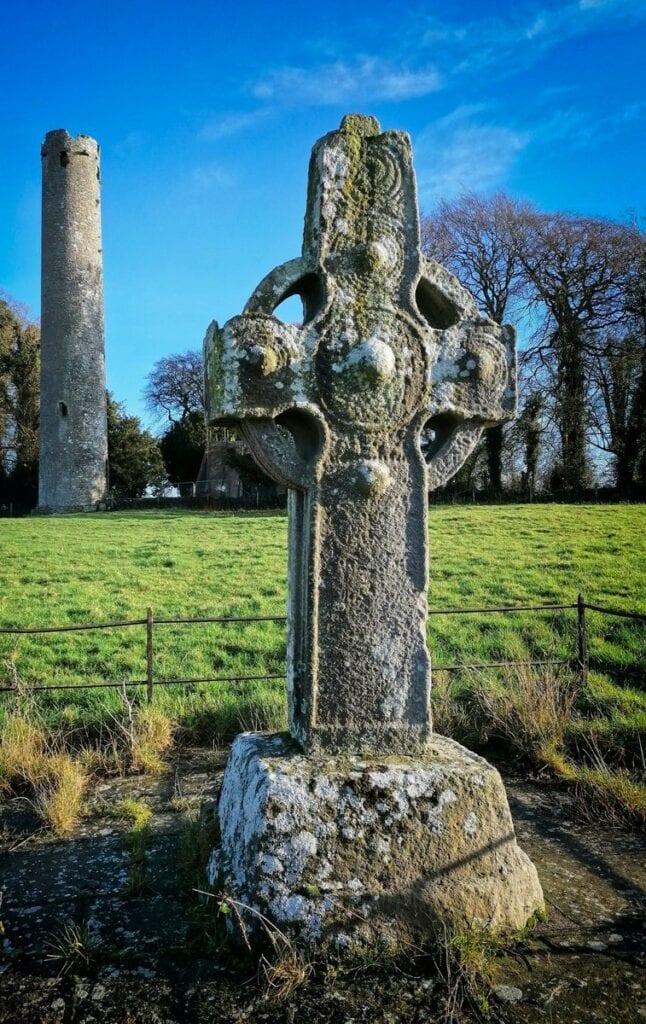
Obtaining healthcare in Ireland as a retiree – the public health services in Ireland
Obtaining healthcare in Ireland as a retiree is relatively straightforward, thanks to the country’s comprehensive medical system. As a retiree, you are entitled to receive healthcare through the public health service, known as the Health Service Executive (HSE).
All individuals who have their usual residence in Ireland and certain individuals visiting Ireland have the right to avail a variety of public health services without charge or at a lower expense. You are considered as having your usual residence if you have been residing in Ireland for a minimum of one year or if you plan to reside in Ireland for a minimum of one year.
Everyone ordinarily resident in Ireland and certain visitors to Ireland are entitled to a range of public health services either free of charge or at reduced cost. You are ordinarily resident if you have been living in Ireland for at least a year or you intend to live here for at least one year.
The GMS card covers general practitioner visits, hospital stays, and prescription medications at no cost or at a reduced rate. You can apply for the GMS card if you meet certain criteria, including being over the age of 66 and residing permanently in Ireland. However, if you do not qualify for a GMS card, you can still apply for a Medical Card, which provides a range of healthcare services at a reduced cost.
Private Medical Insurance
It is also worth considering private health insurance if you want access to additional services or faster treatment options. Many retirees choose to have private health insurance to supplement their public healthcare coverage. Overall, Ireland’s healthcare system ensures that retirees have access to essential medical services without facing excessive financial burdens. Whether through the public or private sector, retirees can feel secure knowing they can receive the necessary care to maintain their health and well-being.
If you live abroad but are an Irish citizen retiring to Ireland you can return at any time. You may have to arrange for any pensionable benefits to be transferred from where you worked to Ireland and of course obtain all the necessary social security documents.
Ireland has long been revered for its stunning landscapes, rich history, and vibrant culture. With its friendly locals, lively pubs, and picturesque countryside, it’s no wonder that many retirees dream of spending their golden years in the Emerald Isle. But retiring to Ireland is not merely a fantasy; it’s an achievable goal for many individuals seeking a peaceful and fulfilling retirement.
Retiring to Ireland can be a transformative and enriching experience. By carefully considering your financial situation, healthcare needs, and preferred lifestyle, you can embark on a fulfilling retirement journey in this beautiful and captivating country. For more information you can check out Ireland’s Citizen’s Information.
You might also like
53 Ultimate tips for travel to Ireland Céad Míle Fáilte
My Move to Europe – 21 personal stories
International Housesitting & how to get house sitting jobs
How do I get an EU Passport and EU Citizenship?
Move to the UK as a Canadian or American
Pin it to save it


